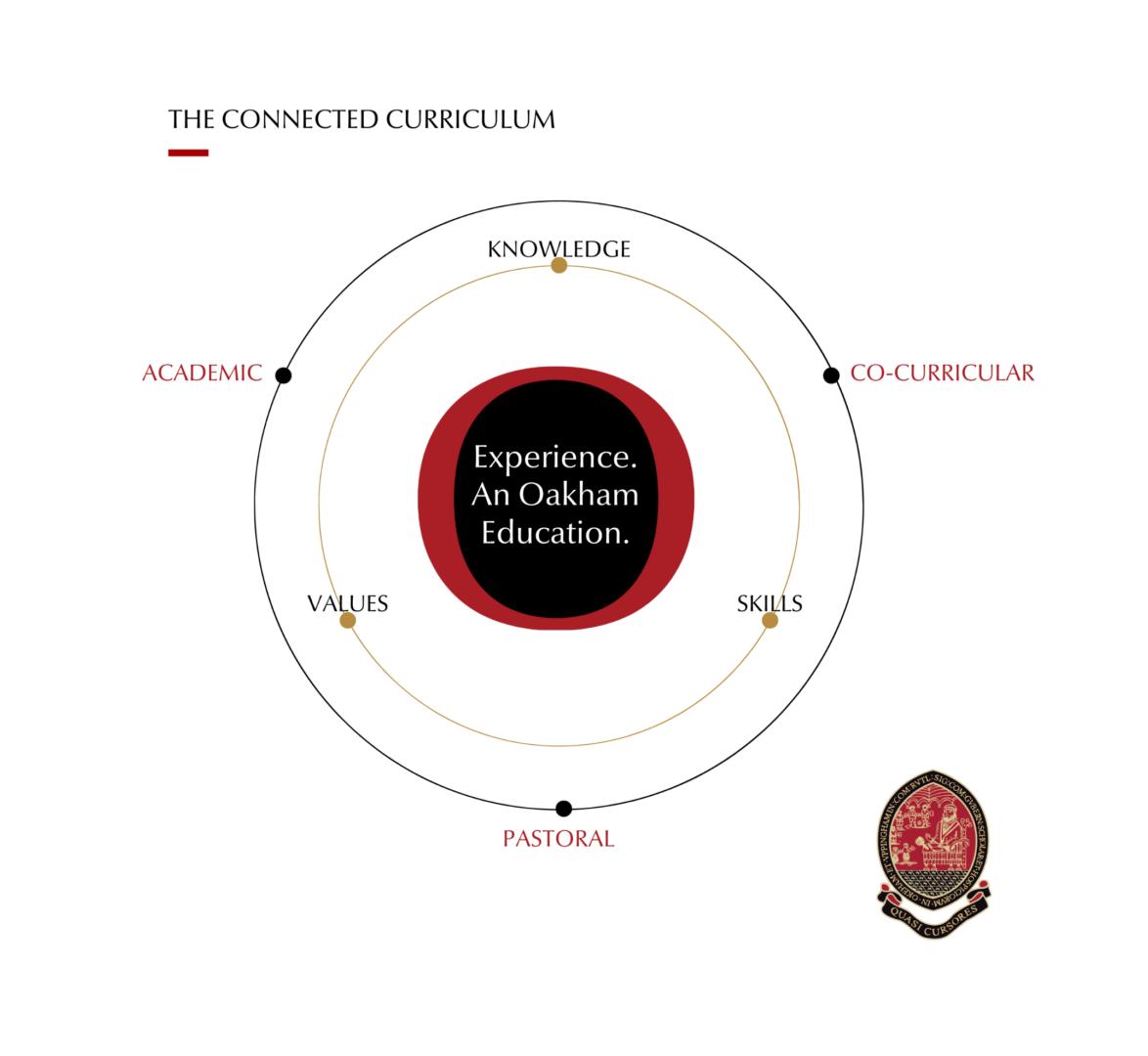
Citizenship in the connected curriculum
Case study published by ACT’s research team on the connected curriculum
Citizenship in the connected curriculum
The latest case study to be published by ACT’s research team describes a novel approach to the curriculum. Oakham School is a large independent school, with hundreds of boarders, which enables it to offer lots of clubs, societies and sporting activities beyond the formal curriculum, as well as requiring the school to offer around the clock pastoral care for young people. The resources and time available for this extra-curricular provision makes this an ideal context in which to think about how these different elements of school provision connect up, and colleagues at the school have devised the Oakham ‘connected curriculum’ to do just that.
What is the connected curriculum?
The starting point is an obvious one – that schools plan provision for students across three types of activities:
- the academic curriculum
- extra-curricular activities, including sports clubs, debate societies, active citizenship projects etc. (called the co-curriculum in Oakham), and
- pastoral provision, including tutor time, the PSHE, RSE and careers
And each of these areas of activity also incorporates knowledge, skills and values.

What is it for?
The novelty of Oakham’s approach derives from thinking about whether there are some core capacities that underpin the vision of the school and relate to all three dimensions of the connected curriculum. Their answer is one that many schools would readily endorse. They want all their students to become experts in:
- Communication
- Research
- Thinking
- Self-management, and
- Social skills
A young person who wants to develop their communication skills could learn this in the English curriculum, and join the debate club or volunteer for the school magazine, or they could become a mentor for younger students. Another wanting to develop their capacity as a researcher could do this by undertaking a history research project, or investigating the impact of different sports training regimes, or planning a school-based health campaign.
How does it work?
There are three components to putting this deceptively simple starting point into operation. First adults and students need opportunities to discuss each young person’s needs and devise realistic plans. Second, students have to develop the habit of reviewing their progress in relation to these areas. Third, adults need to articulate how their work addresses each of these underlying capacities.
The First two dimensions are largely taken care of by organising time in the calendar for students to undertake self-evaluations where they reflect on their experiences, strengths, weaknesses and goals. This is a form of self-assessment that moves beyond the traditional academic subjects where such activities are normally situated. Then students meet with their tutors and other pastoral staff to review their progress and goals and discuss realistic and achievable strategies for addressing these areas. This might involve setting targets to join a new club, find help to progress in a sport, or guidance for GCSE options.
The third dimension requires heads of department to provide a new account of their subject, clarifying how it contributes to these five areas of expertise. Clearly, Citizenship addresses all five areas in obvious ways and active citizenship projects, in particular, provide opportunities to engage with them all simultaneously and in an applied way. Whilst the numbers taking GCSE Citizenship Studies are relatively small, the school also uses the International Baccalaureate Middle Years Programme in key stage 3. This means all students have to undertake a community action project, in which they investigate an issue, plan a project, implement it and reflect on the experience. Many students choose campaigning or advocacy projects, which align readily with Citizenship.
It’s early days for Oakham’s implementation and we have already heard of other schools in the state sector planning similar frameworks to make sense of the whole school’s offer for students. If you’re involved in similar projects, get in touch as we’re eager to document more examples of interesting and innovative ways to promote citizenship education within and beyond the curriculum.
About ACT’s research programme
The Association for Citizenship Teaching (ACT) has commissioned Middlesex University to undertake research to evaluate its Active Citizenship in Schools programme, which is running from 2021-25. The research programme offers a strategic approach to embed social action and active citizenship within Citizenship and the school curriculum. It aims to identify models and practices that ensure pupils engage in and benefit from citizenship education in a sustained and impactful way.
For more information about ACT, the Active Citizenship in Schools programme and how to join the National Citizenship Education Study, please see www.teachingcitizenship.org.uk/research



